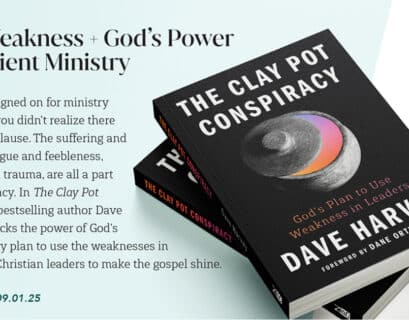Inspecting the Engine of Plurality
Some men plant churches and slide into a plurality of elders through a slow and measured process. Not effortless mind you, but time is on their side and the manuals of Strauch or Dever become companions to help guide the way. Others, like me, inherit a plurality almost overnight through a church crisis where the most compelling qualification is that you are the only pastor left standing. Discovering that this new role comes complete with a set of elders is, well, kind of exhilarating, akin perhaps to finding out you’re pregnant and delivering the baby all in the same evening. But even messier.
As awakenings go, mine landed with a thud. The mental ‘thwap’ arrived as I saw a distinction, one that shaped my entire orientation toward eldership from that moment forward. Simply put, a plurality of elders was not synonymous with a team of elders. Our shared values, mutual respect, history of relationships, network affiliation, and even constitutional responsibility did not magically create a band of brothers. A plurality can be nothing more than the names that appear in incorporating documents or under the “elders” tab on the church website. But a team is a leadership community that breeds a certain kind of culture. This is not to say that a disconnected plurality has no culture. Wherever two or more elders are gathered, culture emerges. The only question is whether that culture fosters a healthy team and a stronger church.
The importance of converting a plurality into a team cannot be overstated. Like it or not, the culture of an eldership determines the health of a church. John MacArthur says, “Whatever the leaders are, the people become.” This is not to diminish the role of the Holy Spirit, biblical preaching, the priority of mission, or many other means of grace that shape the people of God. But without the agency of healthy pluralities, each of these can be quenched or curtailed.
As the elders go, so goes the church.
The Four-Cylinder Engine
So how do we know if a plurality is healthy; if a plurality is truly a team? Imagine a four-cylinder engine. A cylinder is a giant tube in the engine where the piston moves up and down to compress the gas and ignite the combustion. If that doesn’t sound right, blame Google — I barely know on which side of the car the gas cap is located. My point is that there are four plurality cylinders that power the engine of the team. When these cylinders are working well together, the engine of team not only starts easily but also accelerates quickly to help the church move forward.
Let’s examine each plurality cylinder below and consider a few warning signs that may flash across the dashboard.
The Agreement Cylinder
(Indicator: Do we agree with each other?)
Many well intentioned—and faithful!—men have sought to build a church around oversimplified belief statements such as, “We believe in Jesus. Period.” This serves neither the church, who looks to leaders for clarity, nor the elders who live confused over what truly unites them. A plurality grounded upon abstractions will never become a team. When elders are united around the lowest common denominator, they find that the agreement cylinder often breaks down causing the engine to decelerate, and sometimes completely stop.
A call to eldership includes defining and protecting the doctrinal borders of the church. Elders need not agree on everything, but they do need to be unified on essential doctrines, beginning with the gospel. The church is a theological entity and therefore theological men united by theological agreement must lead it. This begins with a doctrinal unity (Eph. 4:1-16) grounded upon a statement of faith or some common creed(s) to which all subscribe. Some questions to evaluate the scope of your unity, and therefore inspect the Agreement Cylinder, include:
- Do we agree on what is meant by the word “gospel”? (1 Cor. 2:2-5; 15:1-9; Gal. 1:6-12;
- Is the doctrinal basis of our unity as a team well-defined? Do we have a statement of faith, and if so, do we all affirm our statement of faith? (Eph. 4:1-16)
- Do our terms mean the same thing? (2 Tim. 2:13-14)
There’s a second part to the Agreement Cylinder though; far more subtle yet no less important. It becomes apparent when you inspect how well the eldership talks about what they believe. Elderships become teams through theological discussion that is timely, consistent, respectful, and vigorous. That’s why the other part of this cylinder probes the care and wisdom we employ when discussing and debating our beliefs, perhaps even our differences. It explores whether we can divide doctrines without dividing relationships. Some questions to monitor the quality of these conversations include:
- Are we growing together theologically through study and discussion? (2 Tim. 2:15)
- When we disagree on less important doctrines or methodologies, do we do it wisely and with love? (Eph. 4:1-3)
- Is it clear to me that you have worked hard to understand my positions and can represent them without exaggeration or misrepresentation? (James 1:19)
Some assume that disagreement or dissent clog up the Agreement Cylinder. But it’s a common fallacy that confuses dissent with disrespect or disloyalty. Humble elders who debate in ways that uphold the law of love actually improve the overall engine performance of the team. They know that mindless uniformity among elders weakens the church. They comprehend that a misguided deference to the loudest voice or the naïve admiration of a plurality for its lead pastor triggers warning lights.
In his bestselling book Outliers, Malcom Gladwell tells the story of a commercial aircraft accident where the co-pilot was politely and deferentially suggesting course changes to the captain to avoid a collision. The more experienced captain readily dismissed the co-pilot’s understated advice, quite possibly because it was obscured by his careful mitigation and equivocation. The pilot never got the point. Minutes later, the aircraft splattered onto the side of a mountain. The point? Hyper-deference comes at a steep cost.
A final word of wisdom regarding dissent. As a co-equal elder, you are issued the privilege of dissent. Exercise it honestly, wisely, and… sparingly. It’s easy to take that governing privilege and use it as a political tool to lobby a personal agenda, or relieve yourself of decision-making responsibility. To avoid those temptations, use these questions to help inspect the integrity of this cylinder:
- When we dissent, is it sufficiently principled and coming from a heart that honestly believes this decision may contradict our values or harm the church? (Matt. 12:34)
- In areas where we may differ on important matters with each other or the leader pastor, am I confident you will speak up in a respectful, clear and honest way?
- Will you wisely represent the position of the plurality to others, whether you agree or disagree?
The Trust Cylinder
(Indicator: Do we trust one another?)
Trust lies at the heart of a healthy plurality. Each man must be convinced of the sincerity and integrity of the other. Knowing the elders will speak honestly to the church, to each other, and to the lead pastor encourages them all to be vocal about their concerns and vulnerable about their weaknesses or temptations. Integrity deepens trust. Proverbs 10:9 says, “Whoever walks in integrity walks securely.” Elders with integrity foster a culture of security.
One way to check the operation of the trust cylinder is to specifically measure confidence in loyalty. Some questions to spark the ignition for conversation include:
- Will you be loyal to God’s Word by being completely honest with me? (Col. 1:28-29)
- Will you judge me or exploit me when I show weakness? (Luke 6:37)
- Will you be patient with me in areas I need to grow? (1 Thess. 5:14)
- Can you be discreet once you really know my temptations? (Prov. 3:21)
- Am I confident that you will not share what I confide with anyone who should not know? Do you have my back? (Prov. 16:28)
To achieve genuine loyalty, each elder must be confident in how each team member will respond to the particulars of their fallenness. Remember, serving as an elder situates each man on a perch with a pretty good view into the lives of the other elders. You pray together, work together, think together, counsel together, rejoice together, assess together, and confess sins together. Sharing these experiences forms a pretty large window into the scope of each man’s gifts, struggles, strengths, and weaknesses. You stand armed with perspectives that can unite or divide, refine or weaken, build up or tear down. How you handle it will determine whether men trust you.
Recently I sat with a small group of men confessing some struggles with the past and some fears about the future. My confidence in their loyalty, my certainty that I will hear either correction or compassion as it seems wise to them, liberated me to speak freely. Let’s face it: Absent that kind of confidence, elders stay pretty superficial lest their temptation or weaknesses become poker chips played against them in the future. Team means loyalty, and loyalty says, “I will encourage your strengths without ignoring or exploiting your weaknesses.”
This leads to a second check for the trust cylinder: the presence of humility. To move from a plurality to a team, each man must realize they need the other men. They must experience and model Paul’s analogy of the body (1 Cor. 12:12-27) which assumes, “To grow, I need your help.” Inspecting the presence of humility can start with a few simple questions:
- Are you quick to listen or quick to speak? (James 1:19)
- Will you withdraw when there is misunderstanding? (Matt. 5:23-24)
- Will you be humble if I risk correcting you? (Prov. 9:8)
If community tests humility, then creating a team is like sitting for the bar exam—longer, trickier, and absent immediate results. But this humility, purchased over time through men who suspect themselves and not others, becomes a rich oil that lubricates the relationships and powers the Trust Cylinder to help push the engine of team forward.
This Trust Cylinder—loyalty and humility—will help you navigate many treacherous seas. And if you find yourself on turbulent waters right now, remember that the beauty and simplicity of the cylinder design is embedded in time-tested glory of the Golden Rule (Luke 6:31). As elders, we are simply agreeing to respond to life together in the same way we teach others to respond. And amazingly, as we apply, trust and loyalty abound.
For a plurality to become a team, agreement and trust are essential. Yet the truth is, your elder team and church can’t survive on just these 2 cylinders. They’ll carry you down the road for a few miles, but you’ll eventually sputter out without the other 2 cylinders: Care and Fit.
In our next post we will see how the four cylinders working together, firing in unison, will accelerate you forward toward a healthy team and a stronger church.
(This post was originally posted on the Sojourn Network).











